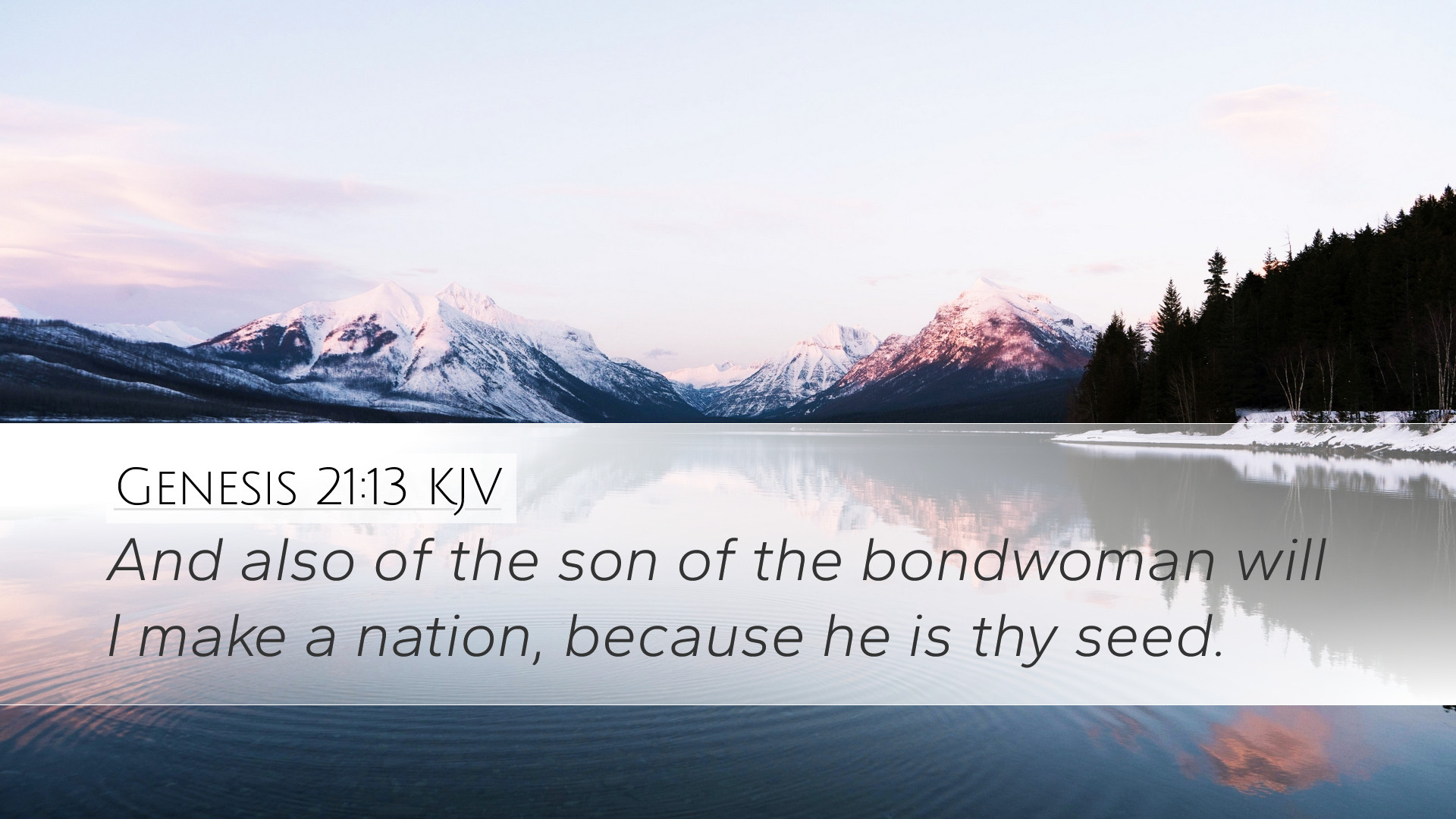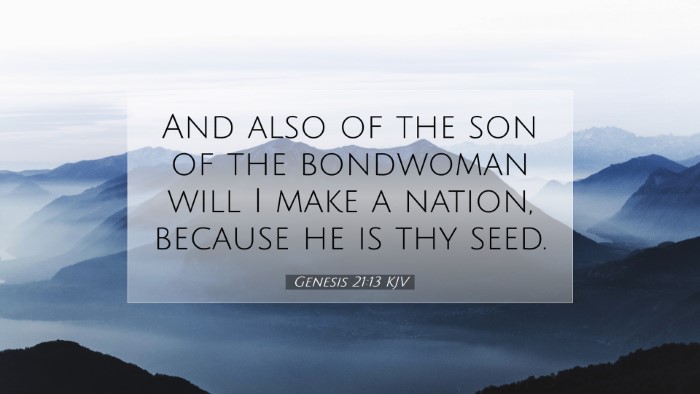Commentary on Genesis 21:13
Verse: Genesis 21:13
"And also of the son of the bondwoman will I make a nation, because he is thy seed." (Genesis 21:13, KJV)
Introduction
Genesis 21:13 captures a pivotal moment in the Abrahamic narrative, delineating God's promise concerning Ishmael, the son of Hagar, the bondwoman. This verse emerges amidst the context of the birth of Isaac, the son of promise, and addresses the implications of divine grace and judgment intertwined in the lives of Abraham, Sarah, and their respective offspring.
Theological Significance
This verse illustrates God’s sovereign plan for humanity, showcasing His ability to extend blessings beyond the expected or chosen path. Through Ishmael, although a son born from a bondwoman, God affirmed his place in the lineage of nations.
-
Divine Grace:
God's mercy is evident as He chooses to make a great nation out of Ishmael, signifying that His plans often transcend human expectations and social standings.
-
Covenant Dynamics:
This promises Ishmael a visible legacy, marking the distinction yet connection between him and Isaac. It reflects the dual nature of God’s covenant: His eternal promises and the temporary provisions for those not directly in line with the primary covenant.
Commentary Insights
Matthew Henry's Commentary
Henry elucidates that God’s provision for Ishmael is a demonstration of His goodness. He observes that while Ishmael may not be the focus of the covenant made with Isaac, his existence is not without purpose. The emphasis on Ishmael's nation from Abraham's loins emphasizes God’s overarching plan for redemption, illustrating that all humanity has a place in God's economy.
Albert Barnes' Notes
Barnes emphasizes the distinction between the two sons, drawing attention to the difference in their inheritances. While Isaac represents the covenant people, Ishmael represents the nations. Barnes also notes how this verse signals God's faithfulness to Abraham, assuring him that those born to him through Hagar would also receive a measure of blessing, underscoring God's compassion for the undeserved.
Adam Clarke’s Commentary
Clarke provides a rich exegesis on the character of both sons. He states that God affirms His role as the one who provides regardless of the circumstances surrounding Ishmael's birth. Clarke further discusses the implications on future nations stemming from Ishmael, emphasizing the long-lasting impacts of this promise as it relates to the historical context of the Arab nations and their descent from Ishmael.
Pastoral Applications
For pastors and leaders in the church, Genesis 21:13 serves as a poignant reminder of God's multifaceted grace. It encourages believers to realize that:
- Inclusivity in God's Plan: God’s love and plan extend beyond cultural, ethnic, and relational boundaries.
- Obedience and Consequences: The complex relationships depicted in this narrative remind leaders about the profound effects of choices made from impatience and human reasoning.
- Hope and Legacy: Every individual has a part in God's kingdom, and no one is insignificant in His grand narrative.
Conclusion
Genesis 21:13 encapsulates a critical moment in biblical history, reflecting God's sovereignty, grace, and providence. By making Ishmael a nation, God reveals that His promises encompass more than human understanding, highlighting the expansive nature of His mercy. The insights from traditional commentaries shed light on the multifaceted dimensions of God's covenantal dealings with humanity, providing a comprehensive foundation for theological reflection and application for scholars, theologians, and pastors alike.


